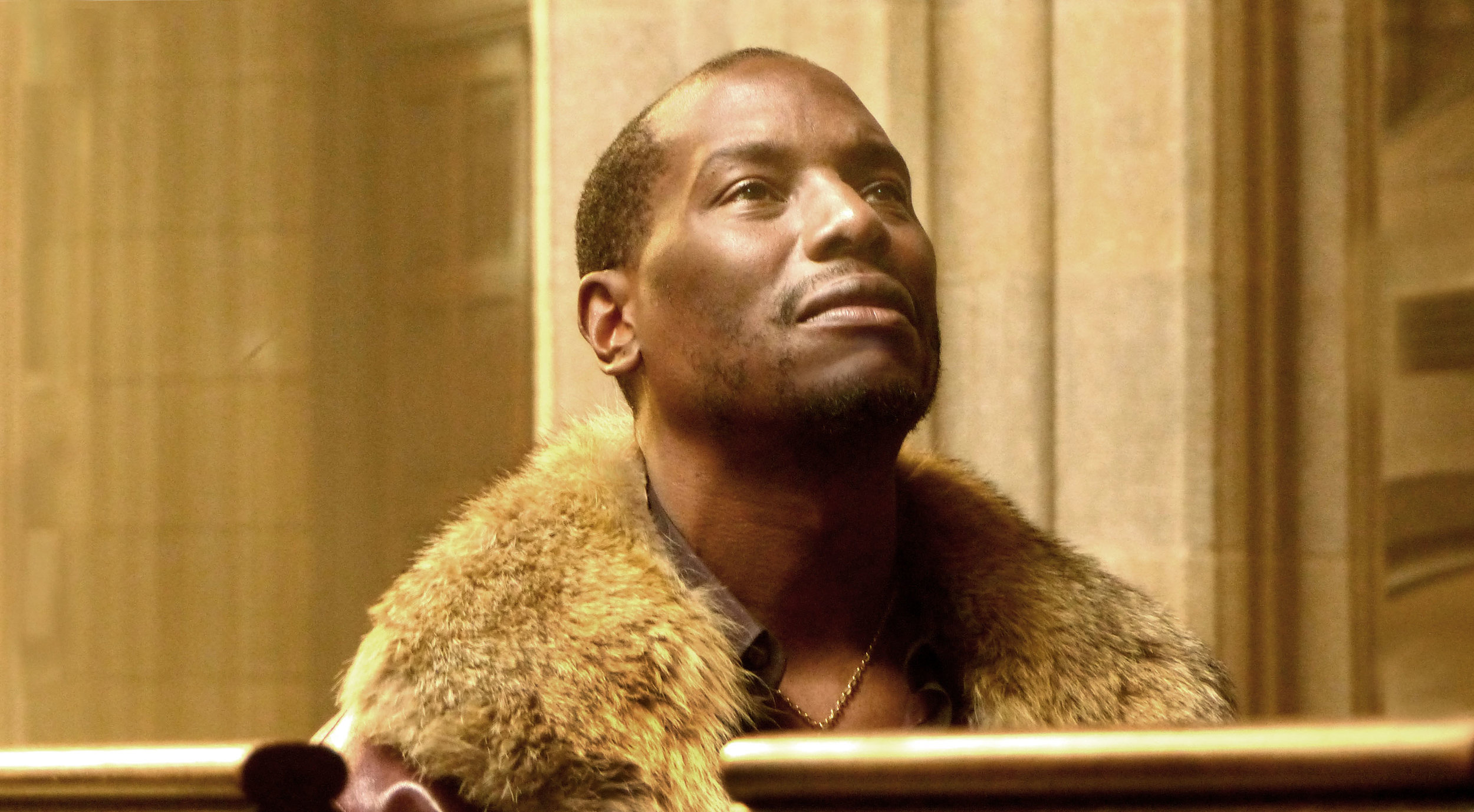 Shame is a powerful emotion, it aids in secrets, lies and deception. The constant need to cover up humiliation can be overwhelming, causing you to sabotage other aspects of your life. The problem is that secrets can only remain hidden for so long. Tyrese Gibson’s new short film “Shame”; which was produced by Academy Award winner Denzel Washington, embodies all of these emotions. Set in Detroit, Michigan in 1968, Gibson plays Lionel Jacobs, a nightclub singer whose world is rapidly unraveling due to his rampant drug and alcohol abuse. Though he’s married to one of his background singer, Bobbi Ann (Jennifer Hudson), Lionel’s demons and indiscretions are beginning to catch up with him. “Shame” is a quiet film; it allows the audience to indulge in Lionel’s depressing late 1960’s world until it explodes; along with the life that Lionel has built for himself. It’s a film about moments, reflections and unforeseen consequences. More than that, “Shame” forces its audience to confront the sins we often try to keep hidden.
Shame is a powerful emotion, it aids in secrets, lies and deception. The constant need to cover up humiliation can be overwhelming, causing you to sabotage other aspects of your life. The problem is that secrets can only remain hidden for so long. Tyrese Gibson’s new short film “Shame”; which was produced by Academy Award winner Denzel Washington, embodies all of these emotions. Set in Detroit, Michigan in 1968, Gibson plays Lionel Jacobs, a nightclub singer whose world is rapidly unraveling due to his rampant drug and alcohol abuse. Though he’s married to one of his background singer, Bobbi Ann (Jennifer Hudson), Lionel’s demons and indiscretions are beginning to catch up with him. “Shame” is a quiet film; it allows the audience to indulge in Lionel’s depressing late 1960’s world until it explodes; along with the life that Lionel has built for himself. It’s a film about moments, reflections and unforeseen consequences. More than that, “Shame” forces its audience to confront the sins we often try to keep hidden.
Though Gibson first appeared on the big screen in John Singleton’s 2001 film, “Baby Boy”, his most recent projects have been action films like the “Fast and Furious” and “Transformers” franchises, his character Lionel shows a much grittier side of the 36-year old actor. Gibson recently premiered “Shame” overseas at the Aruba International Film Festival. Here is what he told Shadow and Act.
On the Inspiration Behind the Film:
Well the movie is directly inspired by my song “Shame”, from my most recent solo album, “Black Rose.” I’ve been living with this song and I was in a relationship for five years and when the relationship ended, I was devastated. So, I went in the studio and the first song that I recorded was “Shame.” After living with the song for a long time, all of these characters popped up in my head. Everything that you just saw was in my head, because I played it over and over and over. So, I got the director in place, and I asked Jennifer Hudson who was featured on the song if she would do the movie with me, and that’s when we also landed Denzel Washington. It was really just a labor of love. I tell people all the time, especially my supporters and fans, all of us have great ideas, and all of us are very creative. If you allow ideas to pop up in your head, and then you allow them to go away; or when you talk to people about it and then they laugh at you, you’re stopping yourself from impacting the world. This was in my head and I was obedient. I made it happen and I followed through.
On Lionel’s Faith, Humanity and Demons:
You know it’s interesting; almost all of us have things that we struggle with. I don’t drink or smoke or anything like that, but I also don’t judge people who do. My mother was an alcoholic for 27 years, so I grew up with drugs and alcohol, and a lot of family in and out of jail. I grew up in the ghetto in South Central, LA so a lot of what you see are images that I was exposed to growing up. I didn’t want this character to be so far away that people can’t relate to him. I wanted Lionel to be relatable. I also wanted people to be able to say, I may have a drinking problem, I may use drugs here and there, but I need to leave it alone because I might end up looking like [Lionel]. It’s that good and that evil that most of us struggle with. That’s why I don’t judge anyone, because good and bad have various levels. Lionel became very popular in Detroit singing at the nightclub, and his popularity made him powerful. But then, he became abusive with his power. So, the thing is, we all have power but a lot of people become abusive with their power and that’s who Lionel was. He thought that it was OK to be married to Jennifer Hudson’s character, and to be having an affair with another background singer. He thought it was acceptable. If anyone tried to get in the way of that, he would shoot, stab and kill and then run to Jesus afterward.
Continue Reading at Shadow and Act.
Images: Tyrese Gibson's "Shame"




